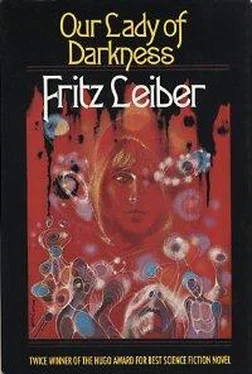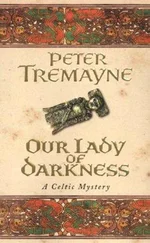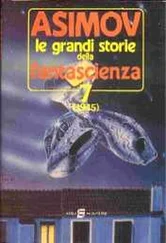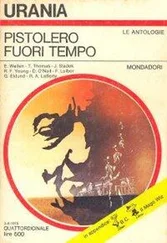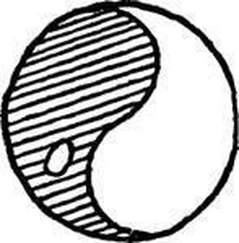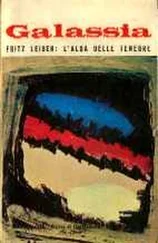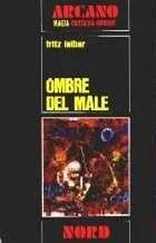Cal nodded. “What’s with the other book?”
“Something quite interesting,” Franz said, passing it over. “As you can see, it’s not a regular book at all but a journal of blank rice-paper pages, as thin as onionskin but more opaque, bound in ribbed silk that was tea rose, I’d say, before it faded. The entries, in violet ink with a fine-point fountain pen, I’d guess, hardly go a quarter of the way through. The rest of the pages are blank. Now when I bought these books they were tied together with an old piece of string. They looked as if they’d been joined for decades—you can still see the marks.”
“Uh-huh,” Cal agreed. “Since 1900 or so? A very charming diary book—I’d like to have one like it.”
“Yes, isn’t it? No, just since 1928. A couple of the entries are dated, and they all seem to have been made in the space of a few weeks.”
“Was he a poet?” Cal asked. “I see groups of indented lines. Who was he, anyway? Old de Castries?”
“No, not de Castries, though someone who had read his book and knew him. But I do think he was a poet. In fact, I think I have identified the writer, though it’s not easy to prove since he nowhere signs himself. I think he was Clark Ashton Smith.”
“I’ve heard that name,” Cal said.
“Probably from me,” Franz told her. “He was another supernatural horror writer. Very rich, doomful stuff: Arabian Nights chinoiserie. A mood like Beddoes’s Death’s Jest-Book . He lived near San Francisco and knew the old artistic crew, he visited George Sterling at Carmel, and he could easily have been here in San Francisco in 1928 when he’d just begun to write his finest stories. I’ve given a photocopy of that journal to Jaime Donaldus Byers, who’s an authority on Smith and who lives here on Beaver Street (which is just by Corona Heights, by the way, the map shows it), and he showed it to de Camp (who thinks it’s Smith for sure) and to Roy Squires (who’s as sure it isn’t). Byers himself just can’t decide, says there’s no evidence for an extended San Francisco trip by Smith then, and that although the writing looks like Smith’s, it’s more agitated than any he’s ever seen. But I have reasons to think Smith would have kept the trip secret and have had cause to be supremely agitated.”
“Oh, my,” Cal said. “You’ve gone to a lot of trouble and thought about it. But I can see why. It’s très romantique , just the feel of this ribbed silk and rice paper.”
“I had a special reason,” Franz said, unconsciously dropping his voice a little. “I bought the books four years ago, you see, before I moved here, and I read a lot in the journal. The violet-ink person (whoever, I think Smith) keeps writing about ‘visiting Tiberius at 607 Rhodes.’ In fact, the journal is entirely—or chiefly—an account of a series of such interviews. That ‘607 Rhodes’ stuck in my mind, so that when I went hunting a cheaper place to live and was shown the room here—”
“Of course, it’s your apartment number, 607,” Cal interrupted.
Franz nodded. “I got the idea it was predestined, or prearranged in some mysterious way. As if I’d had to look for the ‘607 Rhodes’ and had found it. I had a lot of mysterious drunken ideas in those days and didn’t always know what I was doing or where I was—for instance, I’ve forgotten exactly where the fabulous store was where I bought these books, and its name, if it had one. In fact, I was pretty drunk most of the time—period.”
“You certainly were,” Cal agreed, “though in a quiet way. Saul and Gun and I wondered about you and we pumped Dorotea Luque and Bonita,” she added, referring to the Peruvian apartment manager and her thirteen-year-old daughter. “Even then you didn’t seem an ordinary lush. Dorotea said you wrote ‘ ficción to scare, about espectros y fantasmas de los muertos y las muertas ,’ but that she thought you were a gentleman.”
Franz laughed. “Specters and phantoms of dead men and dead ladies. How very Spanish! Still, I’ll bet you never thought—” he began and stopped.
“That I’d some day get into bed with you?” Cal finished for him. “Don’t be too sure. I’ve always had erotic fantasies about older men. But tell me—how did your weird then-brain fit in the Rhodes part?”
“It never did,” Franz confessed. “Though I still think the violet-ink person had some definite place in mind, besides the obvious reference to Tiberius’s exile by Augustus to the island of Rhodes, where the Roman emperor-to-be studied oratory along with sexual perversion and a spot of witchcraft. The violet-ink person doesn’t always say Tiberius, incidentally. It’s sometimes Theobald and sometimes Tybalt, and once it’s Thrasyllus, who was Tiberius’s personal fortuneteller and sorcerer. But always there’s that ‘607 Rhodes.’ And once it’s Theudebaldo and once Dietbold, but three times Thibaut, which is what makes me sure, besides all the other things, it must have been de Castries that Smith was visiting almost every day and writing about.”
“Franz,” Cal said, “all this is perfectly fascinating, but I’ve just got to start practicing. Working up harpsichord on a dinky electronic piano is hard enough, and tomorrow night’s not just anything, it’s the Fifth Brandenburg Concerto.”
“I know, I’m sorry I forgot about it. It was inconsiderate of me, a male chauvinist—” Franz began, getting to his feet.
“Now, don’t get tragic,” Cal said briskly. “I enjoyed every minute, really, but now I’ve got to work. Here, take your cup—and for heaven’s sake, these books—or I’ll be peeking into them when I should be practicing. Cheer up—at least you’re not a male chauvinist pig, you only ate one piece of toast.
“And—Franz,” she called. He turned with his things at the door. “Do be careful up there around Beaver and Buena Vista. Take Gun or Saul. And remember—” Instead of saying what, she kissed two fingers and held them out toward him for a moment, looking quite solemnly into his eyes.
He smiled, nodded twice, and went out feeling happy and excited. But as he closed the door behind him he decided that whether or not he went to Corona Heights, he wouldn’t ask either of the two men on the next floor up to go with him—it was a question of courage, or at least independence. No, today would be his own adventure. Damn the torpedoes! Full speed ahead!
The hall outside Cal’s door duplicated all the features of the one on Franz’s floor: black-painted airshaft window, knobless door to disused broom closet, drab golden elevator door, and low-set, snap-capped vacuum outlet—a relic of the days when the motor for a building’s vacuum system was in the basement and the maid handled only a long hose and brush. But before Franz, starting down the hall, had passed any of these, he heard from ahead an intimate, giggly laugh that made him remember the one he’d imagined for the imaginary maids. Then some words he couldn’t catch in a man’s voice: low, rapid, and jocular. Saul’s?—it did seem to come from above. Then the feminine or girlish laughter again, louder and a little explosive, almost as if someone were being tickled. Then a rush of light footsteps coming down the stairs.
He reached them just in time to get a glimpse, down and across the stairwell, of a shadowy slender figure disappearing around the last visible angle—just the suggestion of black hair and clothing and slim white wrists and ankles, all in swift movement. He moved to the well and looked down it, struck by how the successive floors below were like the series of reflections you saw when you stood between two mirrors. The rapid footsteps continued their spiraling descent all the way down, but whoever was making them was keeping to the wall and away from the rail lining the well, as if driven by centrifugal force, so he got no further glimpses.
Читать дальше
